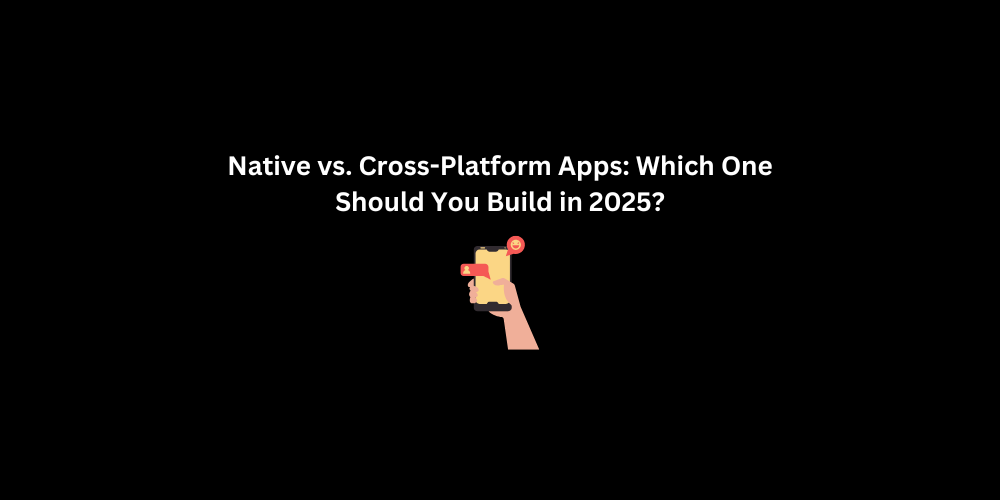As mobile usage continues to rise globally, choosing the right type of mobile app — native or cross-platform — has become one of the most important decisions for businesses. Whether you’re a startup launching your first app or an enterprise looking to digitize operations, understanding the difference between native and cross-platform development can save you time, money, and headaches.
In this guide, we break down native vs. cross-platform mobile apps, their pros and cons, and which is better for your project in 2025.
What Is a Native App?
Native apps are built specifically for one platform — either iOS (Apple) or Android (Google) — using the platform’s official programming languages.
- iOS apps use Swift or Objective-C
- Android apps use Kotlin or Java
These apps are downloaded from the App Store or Google Play Store and offer excellent performance because they’re optimized for the platform.
Pros of Native App Development
- Better performance & speed
- Full access to device features (camera, GPS, push notifications)
- Smooth user experience
- More secure and reliable
Cons of Native App Development
- Higher development cost (two separate apps for iOS and Android)
- Longer time to build and maintain
- Requires two teams or dual-skilled developers
What Is a Cross-Platform App?
Cross-platform apps are built using one codebase that runs on both iOS and Android platforms. Popular frameworks include:
- Flutter
- React Native
- Xamarin
Cross-platform development is ideal for businesses that want to launch faster and reduce development costs.
Pros of Cross-Platform App Development
- Single codebase for iOS & Android
- Faster time to market
- Lower development costs
- Easier maintenance and updates
Cons of Cross-Platform App Development
- Slightly lower performance compared to native
- Limited access to device-specific features
- May not feel fully native to the platform users
Native vs. Cross-Platform Apps: Quick Comparison
| Feature | Native App | Cross-Platform App |
| Codebase | Separate for each OS | Single codebase for both |
| Performance | High | Moderate |
| Development Cost | Higher | Lower |
| Time to Market | Longer | Faster |
| Platform Integration | Full Access | Limited or Plugin-Based |
| UI Consistency | Platform-specific | Slight compromise |
Which One Should You Choose?
Your decision depends on your business goals, budget, timeline, and user expectations:
Choose Native App if:
- You need high performance and advanced device features
- You have the budget for building separate apps
- You’re building a gaming, fintech, or healthcare app where speed and security matter
Choose Cross-Platform App if:
- You want to launch quickly with a lower budget
- You need to target both platforms at the same time
- You’re building a basic or medium-complexity app (like e-commerce or content delivery
Final Thoughts
Both native and cross-platform development have their strengths. The right choice comes down to your target audience, functionality requirements, and budget. If your app needs high-end performance, native is better. If you want to save cost and reach more users quickly, cross-platform could be the way to go.
Build Your Mobile App with 3techno
At 3techno, we specialize in both native and cross-platform mobile app development using modern frameworks like Flutter, React Native, Kotlin, Swift, and more. Our team works closely with startups and enterprises across the UAE, KSA, and the MENA region to craft high-performance, scalable mobile apps that deliver real business value.
Whether you’re building your first app or scaling your digital product, 3techno is here to guide you.
Contact Us Today to book your free mobile app consultation.
FAQs
Q. Which is cheaper: native or cross-platform app development?
Cross-platform is more cost-effective because it requires only one codebase and fewer resources.
Q. Are cross-platform apps slower than native?
Generally, yes — but frameworks like Flutter and React Native offer near-native performance for most use cases.
Q. Can I switch from cross-platform to native later?
Yes, many businesses start with cross-platform to validate the idea and later invest in native apps for better performance.

